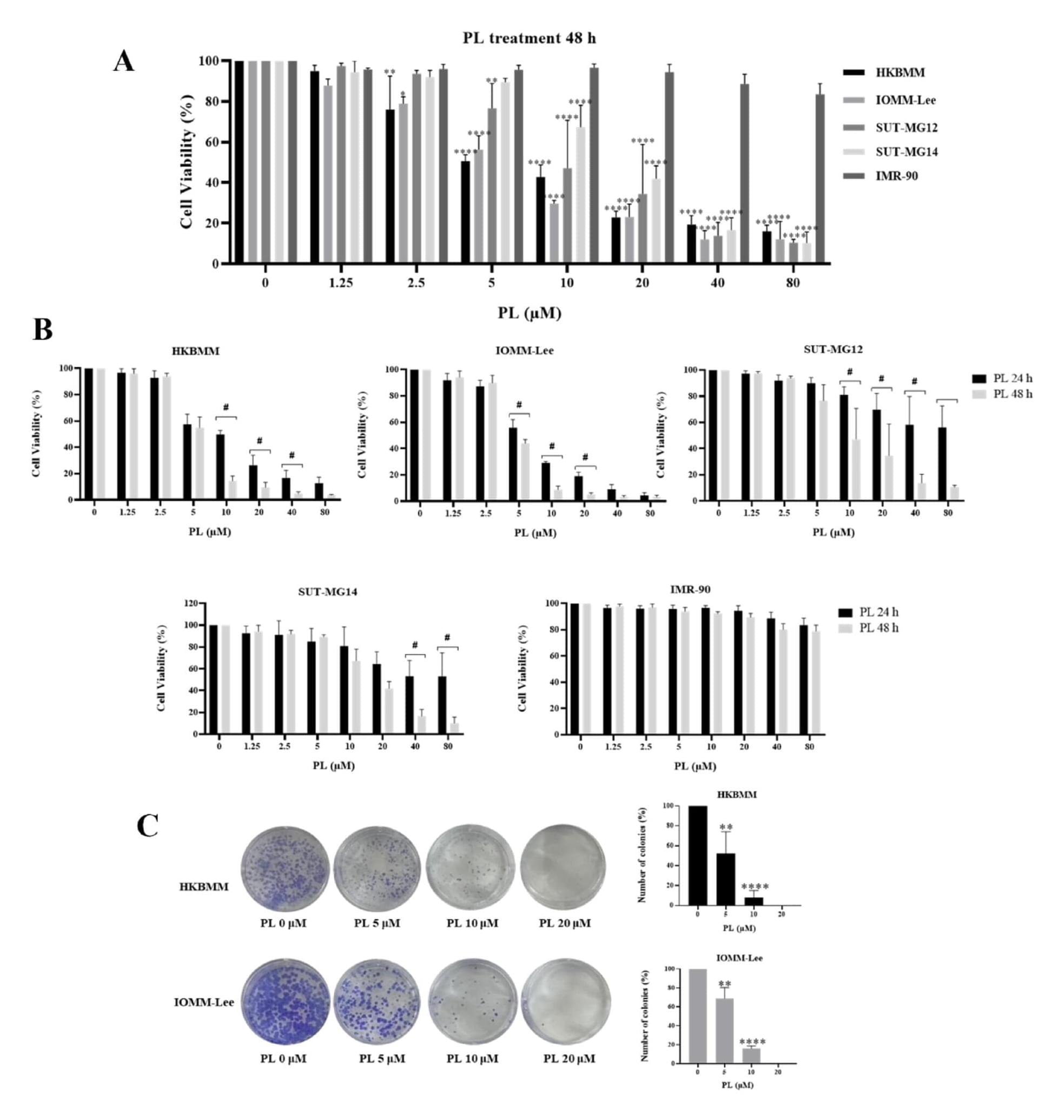Meningiomas, the most common primary tumors of the central nervous system, are curable by surgical resection and radiotherapy. However, systemic therapeutic chemotherapy for meningiomas has not existed. Piperlongumine (PL), a natural alkaloid extracted from the long pepper (Piper longum), has emerged as a promising candidate for cancer treatment due to its multimodal anti-cancer effects. However, the effects of PL in meningiomas are limited.
We examined the anti-cancer effect of PL in vitro using primary benign meningioma cells and malignant meningioma cells. The underlying mechanism of PL in meningiomas was investigated through gene expression experiments at both mRNA and protein levels.
PL inhibited meningioma cell growth, evidenced by inducing G2/M phase arrest via the up-regulation of cell cycle regulators including TP53 and CDKN1A/p21 and enhancing cell apoptosis via the up-regulation of cleaved caspase 3 and cleaved PARP1. PL-induced meningioma cell death was triggered via the activation of intracellular reactive oxygen species production leading to endoplasmic reticulum stress and the alteration of ubiquitin-proteasome system resulting in the accumulation of poly-ubiquitinated proteins.
